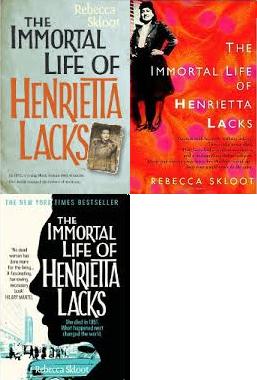
The Immortal Life of Henrietta Lacks
In 1951 a young woman from Baltimore died of cancer. Her death changed medical science for ever. Her name was Henrietta Lacks, but scientists know her as HeLa. She was a poor Southern tobacco farmer whose cancer cells - taken without her knowledge - became one of the most important tools in medicine. The first `immortal' human tissue grown in culture, HeLa cells were vital for developing the polio vaccine, helped lead to important advances like in vitro fertilization, cloning, and gene mapping, and have been bought and sold by the billions. Yet Henrietta herself remains virtually unknown, buried in an unmarked grave. Now Skloot takes us on an extraordinary journey, from the `coloured' ward of John Hopkins Hospital in the 1950s to East Balitmore today, where Henrietta's children and grandchildren live, and struggle with the legacy of her cells. Over the decade it took to uncover this story, Skloot became enmeshed in the lives of the Lacks family, especially Henrietta's daughter Deborah, who was devastated to learn about her mother's cells... This book captures the beauty and drama of scientific discovery, as well as its human consequences.
